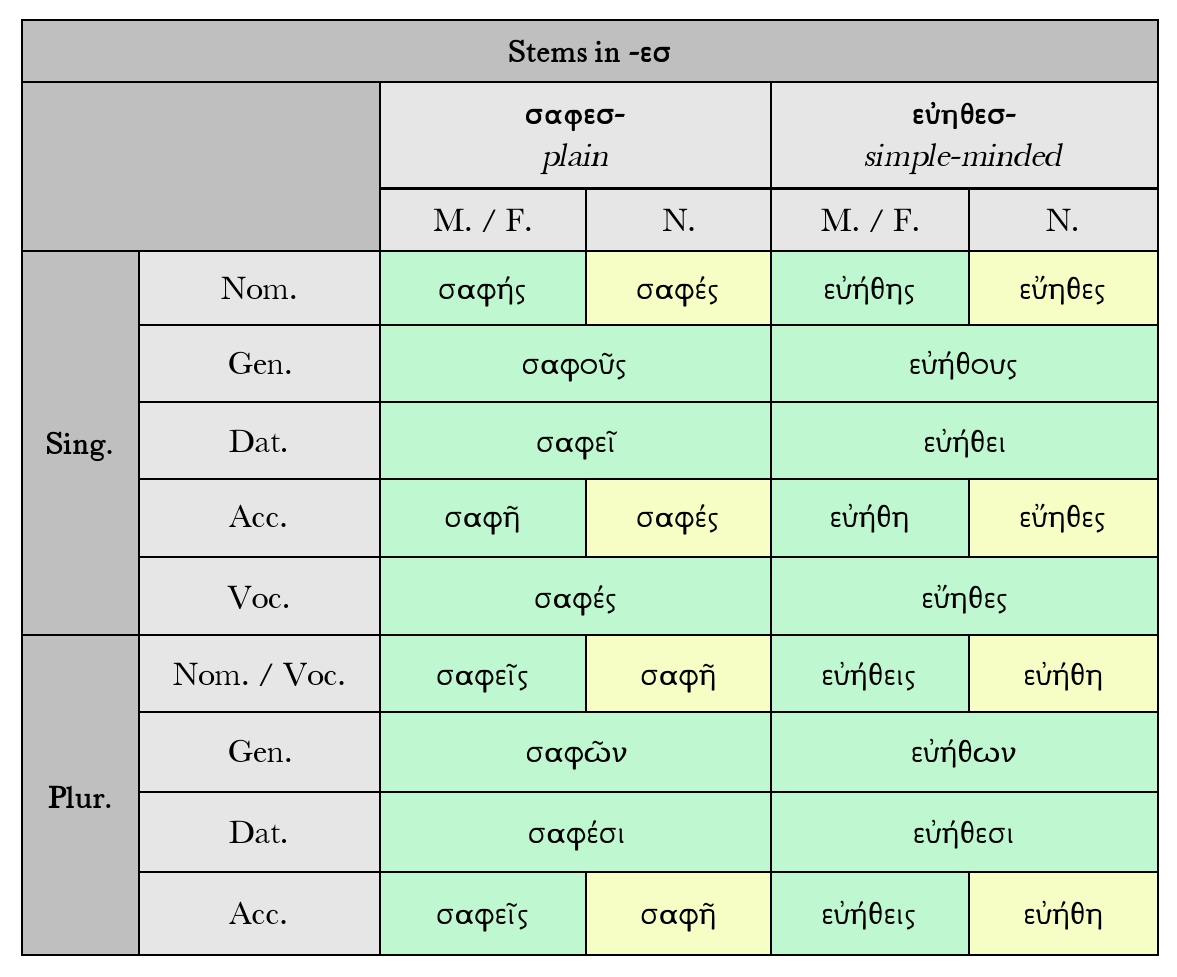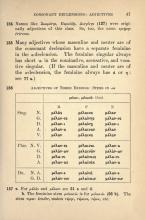151. Greek Adjective Stems in -εσ
152. a. In the nominative singular -εσ becomes -ης in the masculine and feminine, but remains -ες in the neuter (cp. γένος, §§ 124, 125.a). The -σ- disappears between vowels (§ 55.a) and contractions are regular (§ 29.a & c-e).
σαφοῦς from σαφέος
σαφῆ from σαφέα
σαφεῖς from σαφέες
σαφῶν from σαφέων
In the accusative plural σαφεῖς is borrowed from the nominative. (Cp. § 150.)
b. But if -εσ follows a vowel, -έα usually contracts to -ᾶ instead of -ῆ.
ἐνδεής (needy): [ἐνδεέα] ἐνδεᾶ
εὐκλεής (famous): [εὐκλεέα] εὐκλεᾶ
153. a. The accent, if it is not on the ultima, is recessive, even in contract forms.
b. But not in the neuter forms in -ῶδες and -ῆρες.
εὐῶδες fragrant
θηριῶδες animal
ποδῆρες reaching tο the feet
154. Names like Σωκράτης, Περικλῆς, and Διογένης (§ 127) were originally adjectives of this class. So, too, the noun τριήρης (trireme).
155. Many adjectives whose masculine and neuter are of the consonant declension have a separate feminine in the α-declension. The feminine singular always has short -α in the nominative, accusative, and vocative singular. (If the masculine and neuter are of the ο-declension, the feminine always has -ᾱ or -η: see § 77.a)



